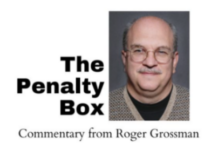The Indiana Chamber of Commerce is advocating for greater commitments to road spending and education, and in some instances, tax hikes to cover the costs.
In a letter to both gubernatorial candidates, Republican Eric Holcomb and Democrat John Gregg, Kevin Brineger, president and CEO of the Indiana Chamber of Commerce, urges major changes in a variety of areas that are part of a broad four-part plan, with education and road improvements among the biggest concerns.
Calls for a long-term commitment to improve roads are consistent with what was echoed last year from the General Assembly. Last year, lawmakers provided more money and incentives for local leaders to increase road maintenance and pledged to look at a longterm solution in 2017.
Exactly how to fund that is expected to be a major sticking point when the legislature convenes in January.
The chamber supports raising the gas tax, indexing future gas tax rates to the inflation rate and establishment of a toll road on an existing “major interstate.”
The group also would like to see the state devote more sales tax revenues to infrastructure.
“Realistically, how we get there matters far less than advancing to the point where we have a robust transportation fund,” the letter said. “It’s time to finally address this in 2017 – hopefully in a bipartisan way – before it becomes a crisis.”
The chamber is calling for expanding of pre-kindergarten programs beyond the handful of test sites already established and more investment in job training for workers who need upgrades.
More focus is needed to ensure high school students are adequately prepared for college or a career, the chamber said. Indiana remains near the bottom in the number of students who achieve college degrees, according to the chamber. The chamber did not outline any specific spending measures, but calls for action by elected leaders.
“Elected office comes with weighty responsibilities, with doing everything possible to help ensure educational attainment,” the chamber said. But such proposals to increase revenues, while not often a side the chamber embraces, would be necessary to fund the scope of some of the initiatives.
“Recommending places where additional revenues might be needed is not a typical thing you will hear, but it is more of a reality check that they are needed in certain places,” said Tom Schuman, senior vice president of communications and operations, who visited Warsaw earlier this week.
In another proposal, the state chamber calls for more to be done about the health of Hoosier residents, namely obesity and smoking.
Among its proposals, the organization calls for the minimum smoking age to be raised from 18 to 21, and proposes the state cigarette tax be hiked to put Indiana more in line with surrounding states.
Currently, the state’s cigarette tax is a little more than 99 cents a pack and has not been raised in nearly a decade. The national average is $1.60, according to the report. Most of Indiana’s surrounding states are higher.
The initiatives were summarized in four broad areas – education, infrastructure, business climate and a dynamic, creative environment and changes that set the stage for a dynamic and creative environment.
The chamber also renewed its support for expanding civil rights protections for the LGBTQ community, calling on the state to “remove the inaccurate global perception for some that Indiana is not a welcoming place.”
The group called for a “moratorium” on social issues and a return to focusing on economic and job challenges.
Support for continuing the Regional Cities initiative was also voiced by the chamber. The program matches funds from local communities that come up with projects aimed at improving the quality of life.





